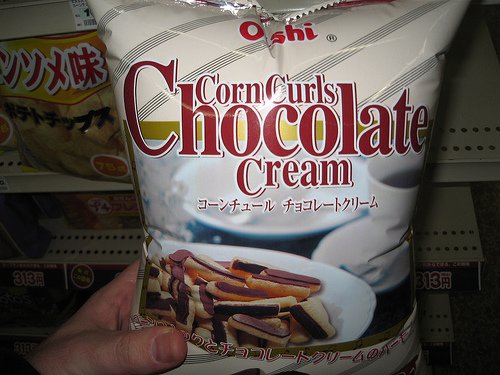Japan has one of the lowest birthrates of any modern nation, with just 1.38 children born per couple, which will increasingly make Japanese people a rare commodity in the years to come. It is perhaps in this spirit of preserving every person they can that the Japanese national police agency is holding this year’s Spring Traffic Safety Week, a time of increased police presence on the streets and general awareness of the importance of traffic safety. Everywhere you go you see flags promoting “safety driving” (sic) and creative thinking about ways to reduce traffic accidents and deaths. Kids in school get visits from the designated safety officer, who talks to them about how to make sure cars see them while walking home from school and how important seat belts are. Traffic Safety Week, which is also held in the fall, is quite an event, and various volunteer groups like the Lions Club, the Japan Rotary Club and the Girl Scouts all hold various related events.
Like most countries, Japan has its unsavory elements, including organized crime. Japan’s version of the Italian mafia are the yakuza (YAH-koo-za), a name which literally means “8 9 3” and refers to a losing hand in a traditional Japanese card game. The yakuza have almost four hundred years of history dating from the Edo Period, when the nation was closed off to outside influence and able to grow free of the wars that had plagued previous eras. While yakuza have been seen as defenders of the weak in popular lore, in reality they’re very smart criminals with excellent organizational skills who operate various businesses, from illegal high-interest loans to shady drinking establishments in Tokyo’s Kabuki-cho district where simply going in can expose you to an exorbitant “sit down charge.” Yakuza are famous for their incredible full-body tattoos, a popular art form in Japan, and since public baths are a favorite spot for both yakuza types and yours truly I’ve seen my share of these, even though virtually every public bath has a “no tattoos allowed” sign up. Although yakuza are gangsters, they’re usually very polite, and it’s considered good form for a well-connected person to have a few yakuza friends, just in case. Yakuza are often associated with “uyoku” (oo-YO-koo), Japan’s famously loud right-wingers who drive around in huge trucks blasting World War II era songs and, occasionally, the theme from the classic anime Space Cruiser Yamato (it’s always fun as an “enemy” American to sing along with them and watch the expressions on their faces). Once I was talking with a tattooed yakuza friend after a bath, and he asked me to teach his kids English once a week. I declined, but that would be been an experience worth blogging about…
If you ever come live in Japan, there are some fundamental things you need to get used to. First of all, if you’re from a country that uses the English system of measurements, you’ll need to get comfortable with centimeters, kilometers, and kilograms — and before long you’ll be annoying your friends back home by using the Metric system on them. Next, you’ll have to get used to the Japanese era name system, which basically assigns a name to the reign of each Emperor (this year is Heisei 18, the 18th year of the current Emperor, Akihito). Sure, everyone knows the Western calendar, but on a day-to-day basis, it’s actually more common to reference years using the traditional Japanese system — for example, I was born in Showa 43, came to Japan in Heisei 3, got married in Heisei 5, and we started J-List in Heisei 8. Getting used to money can be a pain, too, since Japanese use the Chinese numbering system that’s based on the unit of 10,000 (1 mahn), rather than 1,000 as in the West. While it’s certainly possible to laboriously convert, say, 10 mahn to 100,000 every time you talk, before long you’ll probably find yourself comfortable with the Japanese system.
J-List offers many ways for people interested in learning the Japanese language, from flashcards to kanji practice notebooks to Japanese report paper. We have a great announcement for you: the return of Nihongo Journal, the excellent monthly magazine dedicated to serious students of Japanese. Each 126 page magazine is loaded with articles, kanji and vocabulary building exercises, and features content in English, Korean and Chinese. Best of all, you get the audio CD with each issue, which helps you learn to recognize spoken Japanese (highly recommended for people not lucky enough to live here like us). We have the January 2006 issue on the site now!

More fun at convenience stores. These are chocolate covered corn puffs. Yech!















